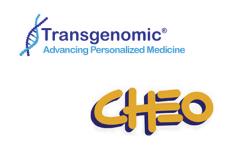Aggregated News

"Gene patents no longer need to stand in the way of diagnosing life-threatening disease."
That’s how Alex Munter, president and chief executive officer of the Children’s Hospital of Eastern Ontario, summed up the impact of an out-of-court settlement in the lawsuit CHEO launched against Transgenomic Inc. in 2014.
Transgenomic, a biotechnology company based in Omaha, Neb., owns five gene patents related to the potentially deadly heart condition Long QT syndrome.
What that meant, practically, was that if CHEO (or any other hospital) wanted to test patients for Long QT, they had to send the blood sample to Transgenomic and pay $4,800 – even though the hospital had the ability to do the same tests for about $1,500. Further, if a genetic defect that points to Long QT was discovered incidentally – for example, when the lab did a panel on larger parts of the genome – that information could not be communicated to the patient, again because of the patent.
Dubious patents were preventing the timely diagnosis and treatment of sick children and “we found that morally...



